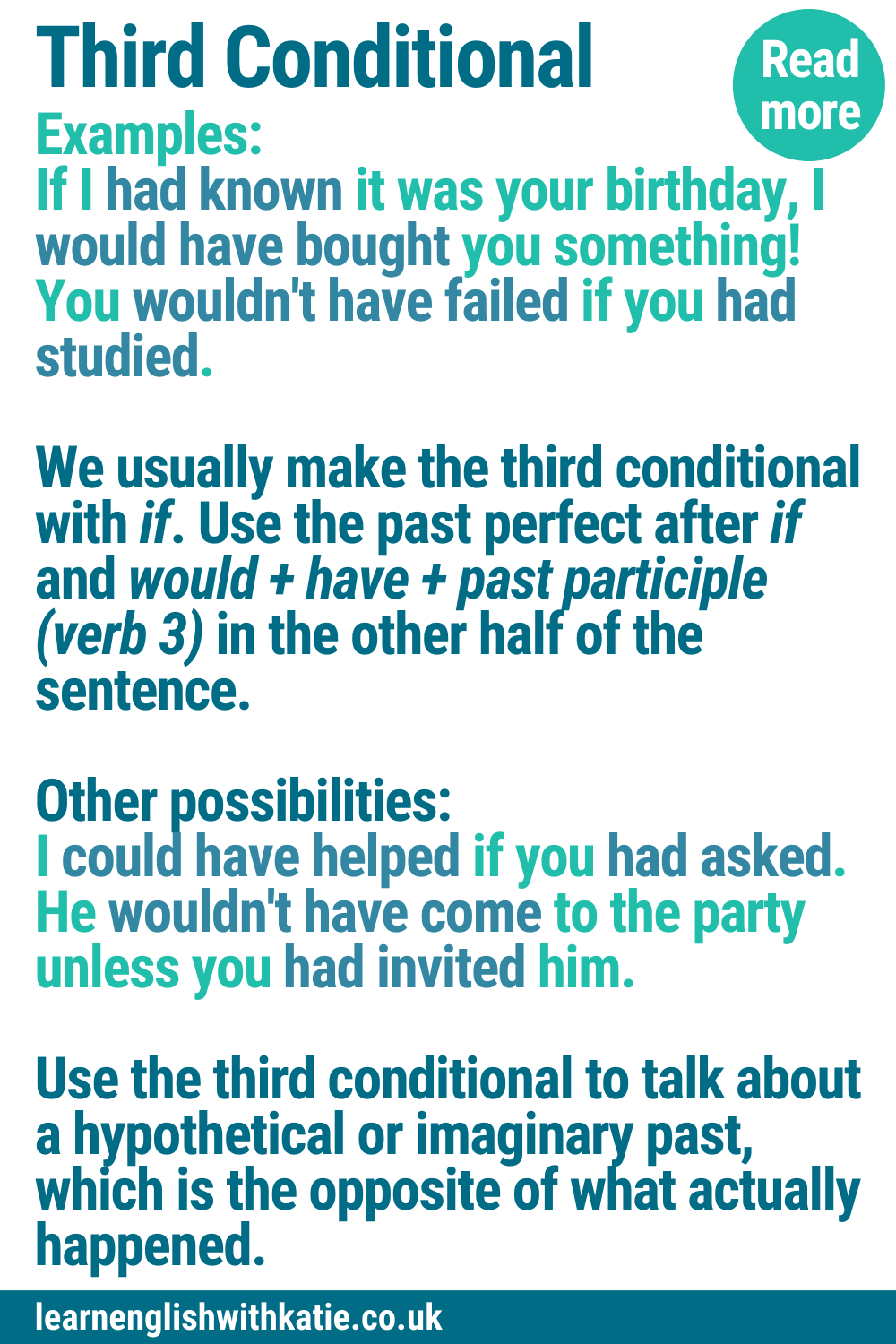|
Some time ago, I started a series of posts about conditional sentences in English and now it's time to finish it! So let's have a look at the third conditional. (You can learn about the other conditionals by clicking here: zero conditional, first conditional and second conditional. We make the third conditional with the past perfect after if and would + have + verb 3 in the other half of the sentence. For example: If the Titanic hadn't hit an iceberg, it wouldn't have sunk. If she had worked harder, she would have passed her exams. He wouldn't have met his future wife if he hadn't gone to that party! Sometimes we use could or might instead of would. If I had learnt French at school, I could have applied for this job. I might have forgotten if you hadn't told me! Occasionally, we use unless instead of if. He wouldn't have come to the party unless you had invited him. This has the same meaning as: He wouldn't have come to the party if you had not invited him. Unless = if not In all of these sentences, we are talking about the past. We are imagining a different past. We can't go back in time and change the past, of course, so it is not real. Note that we say the opposite of what happened. The Titanic hit an iceberg. We say "If the Titanic hadn't hit ..." The Titanic sank. We say "it would not have sunk". She didn't work hard. We say "If she had worked ..." She failed. We say "she would have passed ..." The main points to remember about the third conditional are: 1. It describes something that did not happen in the past. 2. It's not real. It's imaginary or hypothetical. 3. We use the past perfect after if and would + have + verb 3 in the other half of the sentence. Would you like more lessons, as well as tips for learning English, sent straight to your email inbox? Click the button and sign up:
1 Comment
Your comment will be posted after it is approved.
Leave a Reply. |
About the blogFollow the blog for mini lessons and tips on how to improve your English. Categories
All
Archives
July 2024
|

 RSS Feed
RSS Feed
